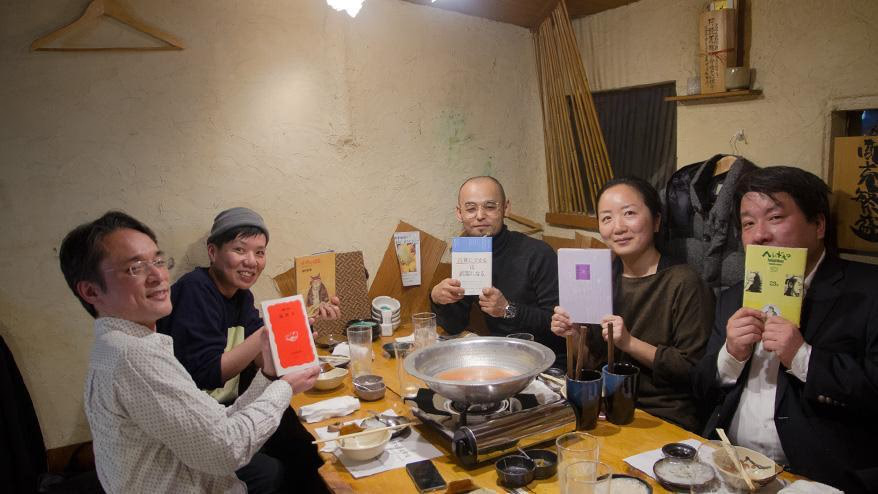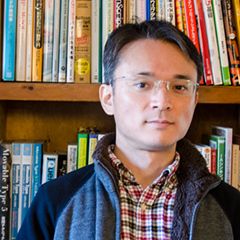Although the New Year's holiday has passed, Happy New Year!
I'm Murakami, the library committee chairman.
The theme of the reading group, held shortly after the New Year, was "Books you want to read in the new year."
It could also be a book related to your goals for this year.
A book that will refresh your mind would be good too.
It could be a book you read over New Year's.
Everyone brought their own "New Year's books."
The venue was the Freshwater Laboratory , a Monosus purveyor.
They prepared a feast fit for the New Year.
While enjoying the delicious food, the members also gave passionate speeches introducing the books.
I will introduce the reading group and New Year's party in two parts .
Now let the reading club begin!
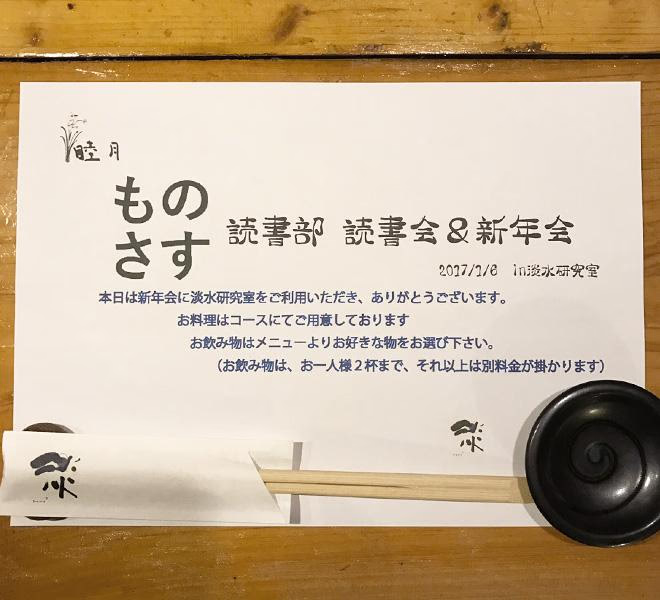
Presentation Time
Part 1
- From the pleasure of entertainment to a deeper world of reading - Takashi Saito (author) "Reading Ability" (recommended by Isamu Murakami)
- People don't know what others think. If you don't like something, shout about it as loud as you can.
Yusuke Kimura (author) "The Flood of Isa" (reviewed by Aya Wada) - By "writing" your inner thoughts, they begin to move forward.
Satoshi Umeda (author) "Being able to put things into words is a weapon." (recommended by Shinsuke Kikunaga)
Part 2
- Eating clams is such a quietly scary thing Words born from ordinary daily life Ishigaki Rin (author) "Nameplates and other things - Ishigaki Rin Poetry Collection" (reviewed by Yoko Omura)
- Heugeru = to fool around. A warlord of the Sengoku period, torn between the desire for success and material desires. "Hyougemono" by Yoshihiro Yamada (reviewed by Masayuki Kamii)
- The monotonous repetition of everyday life and the momentary destruction of life. Suzu-chan's everyday life, living a strong and gentle life. "In This Corner of the World" by Fumiyo Kono (author) (recommended by Yoshiko Nakaniwa)
Going beyond entertainment to a deeper world of reading
"Reading Ability" (by Isamu Murakami)
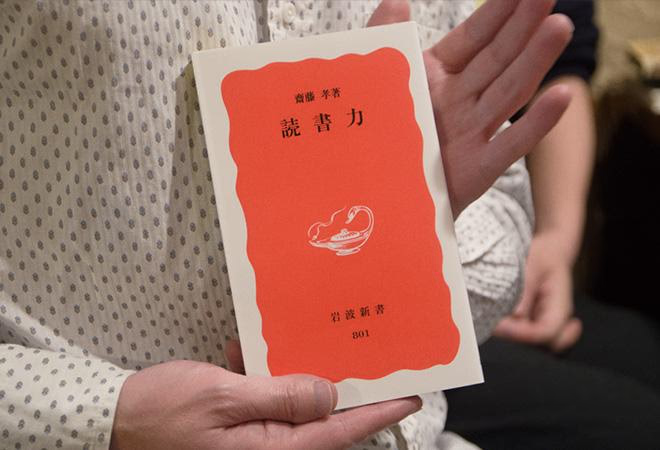
Saito Takashi (author) "Reading Ability" Iwanami Shoten (September 20, 2002) (Amazon )
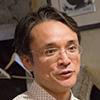 Murakami
MurakamiToday I brought a book called "Reading Ability" by Takashi Saito. I've always loved reading books, but I think it would be even better if I could gain something from them, rather than just reading novels casually. This year I want to read books with renewed enthusiasm, so I chose this book.
I haven't finished reading it yet, but there was a line at the beginning that really hit me. The author is very passionate about reading, but he writes that he hates it when people who like to read say to people who don't read much, "Reading isn't that important."
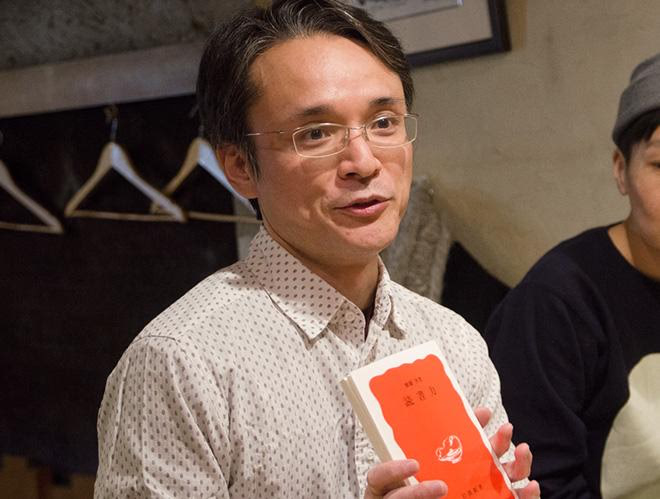
 Murakami
Murakami(laughs) For example, if someone said to me, "You don't read many books, do you?", I would reply, "Books aren't something you necessarily have to read, and if you can absorb a lot of information from sources other than books, I think that's fine."
I thought there was some truth in what I was saying, but when I read the writings of people who read with passion, I feel like I want to be able to recommend books to others with that same passion... I feel like I have a new determination. I'm glad I picked up this book.
This year, I would like to set a goal for myself to read books in depth.
(Time End)
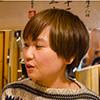 courtyard
courtyardShall we do it while eating first?
~ Freshwater dish "Tuna belly meat" ~
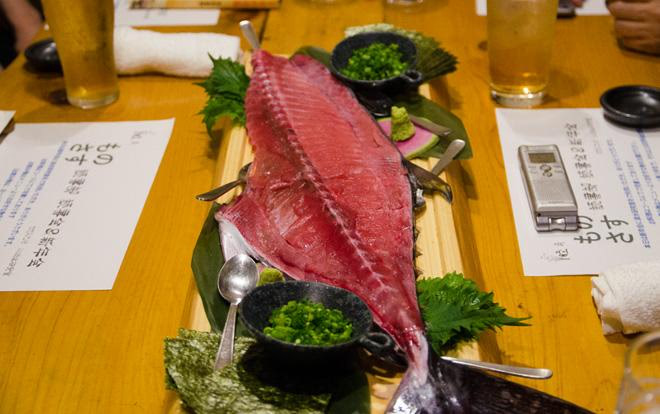
Scrape off the flesh around the spine with a spoon and wrap it in shiso and nori seaweed. The delicious flavor of the tuna fills your mouth.
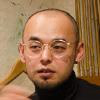 Kikunaga
KikunagaWhat kind of person is the author?
 Murakami
MurakamiHe is a professor at Meiji University's Faculty of Literature and the author of the bestselling book "Japanese that you want to read out loud." In this book, he recommends reading with some tension, rather than just for entertainment.
I like to immerse myself in the world of novels and such, and I've always approached books as a consumer of entertainment, so I thought it would be nice to be able to read in a different way.
 courtyard
courtyardDid you choose this book with a purpose that only a librarian could have?
 Murakami
MurakamiThe library committee chairman...isn't that irrelevant? (laughs)
I want to be able to confidently tell people who say they don't read books, "Reading is good."
 courtyard
courtyardSo, let's get started with a talk encouraging people who are too busy to read to start reading (laughs).
 Murakami
MurakamiFirst of all, why don't you try joining a book club? (laughs) By participating, you can secure time to read books, so start by picking up the book.
Another thing to do is to read after you get in bed. In my case, if I read in a chair, I end up staying up late, but if I read in bed, I can sleep in a comfortable place, so I recommend it (laughs).
People don't know what others think. If you don't like something, shout about it as loud as you can.
"The Flood of Isa" (introduced by Aya Wada)
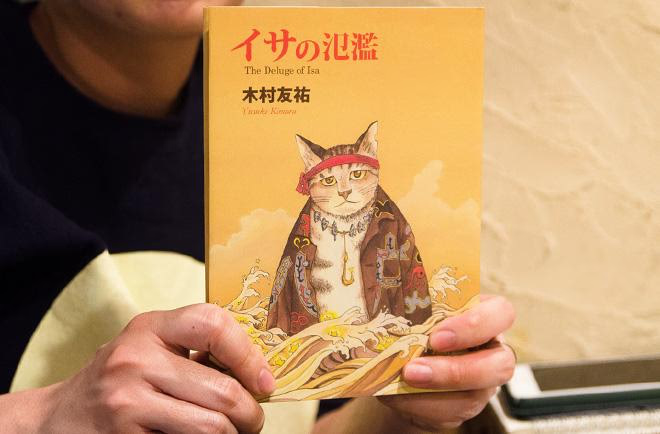
Yusuke Kimura (author) "The Flood of Isa" Miraisha (March 7, 2016) ( Amazon )
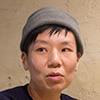 Wada
WadaI brought a book called "Isa no Horan" by Yusuke Kimura. The other day, I went to see a symposium called " Voice Flooding " in which a teacher I know participated, and several writers read their works on stage. There, the author, Kimura, read a passage from "Isa no Horan". He appeared with a shamisen player, and there was even a performance where the shamisen was played in the middle of the reading, which really drew me in.
The story is written in the Aomori dialect, "Nambu-ben." The protagonist moved to Tokyo from Aomori and has been changing jobs frequently. His uncle is called "Isao" but is called "Isa." He is a rowdy man who gets drunk and messes up the house so much that even his family dislikes him. After hearing such stories from people around him, he begins to imagine that his uncle, whom he has never met, is a descendant of a brave Ainu warrior named "Isa." He returns to his hometown and begins to find out about his uncle's roots.
As I was doing that, I gradually started to feel like "Maybe I'm not Isa?" It was as if my uncle Isa had possessed me, and I was able to express the thoughts that I had never been able to express in Tokyo, and in the end, I was able to shout out loud and we all attacked Tokyo. This is a bit of a leap, but...
It's like the feelings of the people of Tohoku... After the earthquake, people say things like "I feel sorry for Tohoku" and "Hang in there," but what is the reality? Like that. I think it would be good to say more of what they're feeling inside, and I don't think I can express it well in words, but there are some really strong cries written in this book. Also, it's written in the southern dialect, so it's really easy to understand, and it was a shocking and moving book.
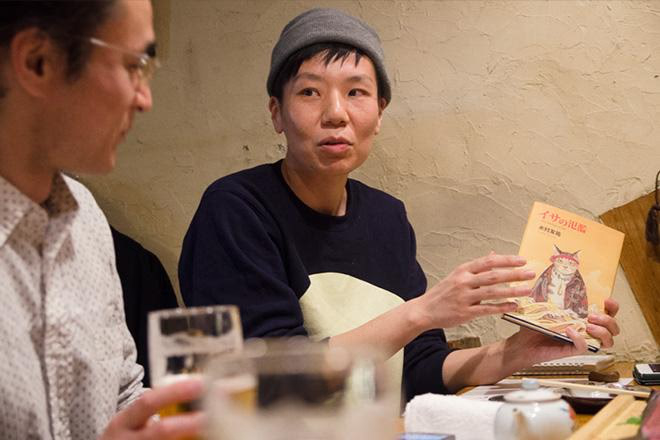
 Murakami
MurakamiWhy is there a cat on the cover? The main character is a cat...
 Wada
Wada...No (laughs). At the end of the story, the protagonist joins his companions in attacking Tokyo, including a cat and a horse, and it is written that the cat is also "Isa", so everyone becomes "Isa".
In Tohoku, there is a history of forced rice cultivation, a sense of being neglected by Tokyo, and the feeling that Tohoku is just a stepping stone even in the earthquake... well, not exactly, but in the end, that's what it feels like in Tohoku. I think it would be okay to speak out more about those pent-up feelings. I think that we who live in the modern age are being led to not say anything, and that it would be okay for everyone to say more about what they're thinking. This work makes you feel that way.
 Kikunaga
KikunagaIs the author, Mr. Kimura, from Tohoku?
 Wada
WadaHe is originally from Aomori and currently lives in Tokyo.
At the previous symposium, Kimura-san said that he thought Tokyo was the newest and most advanced city, but when he returned to his hometown, he realized that people in different regions spend the same time and have their own lives. Also, he said that he felt relieved when he spoke in a dialect, or that he could express his emotions. I also felt relieved when I went back to my hometown and heard the Kansai dialect, so I really sympathized with that.
 Murakami
MurakamiIt's true that when I go back to my parents' house, I feel like time passes completely differently.
 Wada
WadaThis year, I want to speak out what I think, or rather, express it more and actually take action. That's what I really felt after reading this book.
~Second freshwater dish: flounder and monkfish liver~

The melt-in-your-mouth monkfish liver and flounder sashimi are served with grated daikon radish and ponzu sauce. I couldn't help but exclaim, "I'm so happy!"
By "writing" your inner thoughts, they begin to move forward.
"Being able to put things into words is a powerful tool." (by Shinsuke Kikunaga)
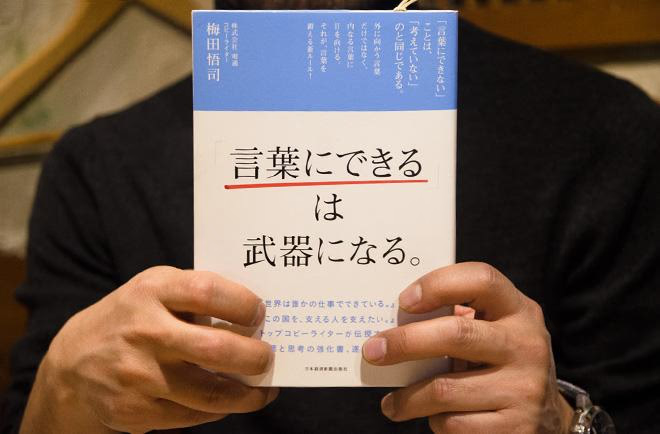
Satoshi Umeda (author) "Being able to put things into words is a weapon." Nikkei Publishing (August 26, 2016) ( Amazon )
 Kikunaga
KikunagaThe resolution I chose for this year is "What you can put into words becomes a weapon." It was introduced in a book review email newsletter, and when I saw it at a bookstore, there was this question in the preface.
"Aren't we just viewing words as a tool for communication? If words are a tool for conveying opinions, then surely we need to develop opinions first?"
So I thought this sounded interesting. I work in sales, and although I'm good at talking in private, I'm not so good at talking about work or speaking in front of other people, so I chose this because I thought it might help with my complex about using words.
The author is a copywriter at Dentsu. In terms of content, words are not a tool for communication, but merely the surface of thoughts. In short, if you don't think, you can't speak. Even if you think about a lot of things in your head, if you don't output or write them down, they will just circulate in your memory.
It describes how to deepen your thoughts, and when you put them into words, you write them on sticky notes, arrange them in terms of breadth and depth, and there are tools and methodologies like that, so I'm going to try that out.
It's really important to express your thoughts in words, or to speak what you're thinking. I think we do this unconsciously, but to further hone our thinking, we need to look at our thoughts objectively and think the opposite of what we think. This way of hone our thinking leads to hone our words. I want to do that this year, and I want to try various things.
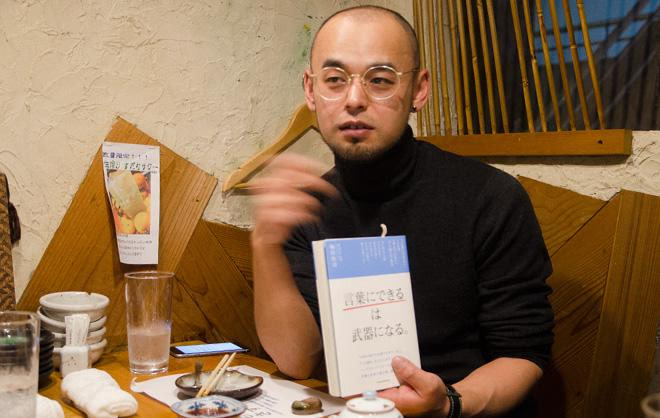
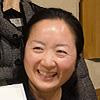 Ohmura
OhmuraWhat does it mean to make words?
 Kikunaga
KikunagaFirst, start writing. Anyway, it starts by writing. And then, it says to face it from various angles and to face your inner words. If you just think about it vaguely, it seems that humans end up just going around in the past memories. By getting it out, you can move forward.
 Murakami
MurakamiIt's true that sometimes you think about telling someone something, but then when you actually try to say it, you realize you can't even say half of it.
 Kikunaga
KikunagaYes, I often find myself not being able to think of anything when I'm told to do something on the spot, but it's because I don't usually put out output, or I'm not prepared. In the end, even in work, that kind of ad-lib, or the ability to come up with something on the spot, is what makes you a good candidate. I think I need to hone that skill.
 courtyard
courtyardThe new year is a time to hone your inner words.
 Kikunaga
KikunagaWell, it might be on a computer, and it doesn't have to be handwritten, but I would like to just keep writing down whatever I'm thinking.
 courtyard
courtyardPlease try it out on the Monosas site! I'm waiting for you (laughs)
~The third freshwater product: milt~

It is topped with ripe orange sudachi citrus from Kamiyama, Tokushima Prefecture.
 courtyard
courtyardWow, looks delicious!
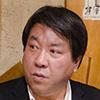 Kamii
KamiiIt's photoshoot time.
 Kikunaga
KikunagaIt looks like a candy. Like sweet potato.
 courtyard
courtyardPlease report it on your Facebook page.
 Kamii
KamiiFor milt. For monkfish liver.
 courtyard
courtyardIt's so luxurious.
(To be continued )
Freshwater Laboratory One inch and five minutes
Tel: 03-3299-3763
1-13-2 Yoyogi, Shibuya-ku, Tokyo
Facebook
